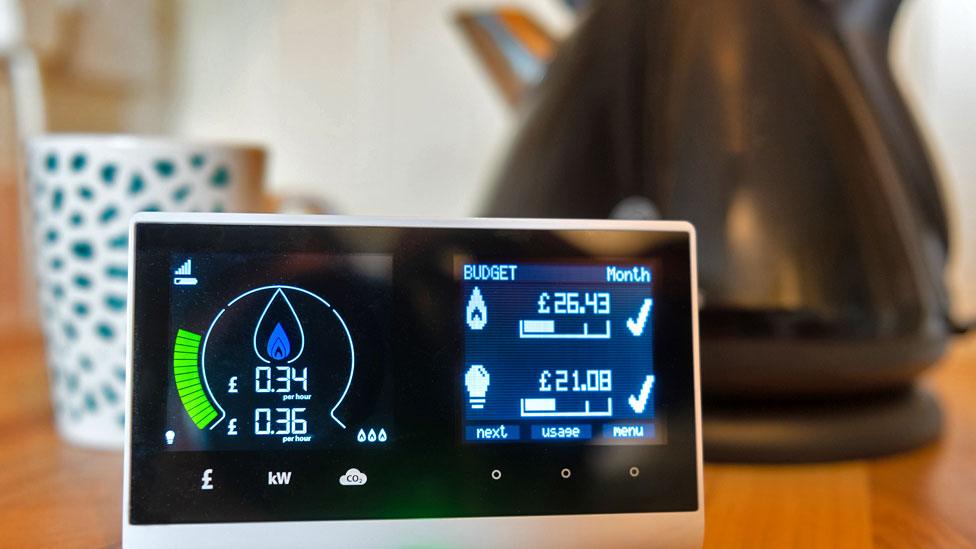Cost of living: North Wales energy bills highest in the UK
- Published

Standing energy charges are the highest in north Wales and Merseyside of anywhere in the UK
Energy bills are higher in north Wales than anywhere else in the UK, according to a charity.
It comes as upcoming changes to how energy bills are paid in April could leave 7.5 million UK households in fuel poverty, said National Energy Action.
Its head in Wales said fixed daily charges in north Wales were over £120 more a year than for those in the East Midlands, England.
Regulator Ofgem said it would keep standing charges under review.
A rise to standing charges for customers on prepayment meters and the end of energy bills support scheme payments means some lower income families' energy bills could rise by 40%.
Ben Saltmarsh, head of Wales at National Energy Action, told BBC Radio Wales Breakfast: "Energy standing charges are set to increase to a new record high, in fact in north Wales higher than anywhere else in Great Britain.
"Standing charges for pre-paid customers, often those on some of the lowest incomes and already in debt to their supplier, will hit over £350 a year for duel fuel householders in south Wales."
Mr Saltmarsh explained that standing charges are a fixed daily amount everyone has to pay, no matter how much energy you use, covering the cost of supplying you with gas or electricity.
"The price cap varies by region, largely due to differences in those network charges - essentially the cost to transport energy to where you are," he said.
"All told, Wales does not fare well. Those in north Wales and Mersey, one of the 14 regions in Great Britain for how the network's divided up, comfortably have the highest average costs of all regions.
"It's about £40 a year more than those who come in second place, and over £120 more a year than for those in the East Midlands of England - which has the cheapest overall rate. And those in south Wales place third - so it's not good news."
Mr Saltmarsh called on Ofgem to revise this in its next price cap period, and in the longer term find a way of helping make energy more affordable for low income households.
Ofgem said: "Following a review of one part of electricity standing charges covering the cost of supplier failures (SoLR costs), we looked long and hard at whether moving the costs from standing charges to usage was the right thing to do, but the numbers just didn't stack up.
"Our analysis shows it would disproportionately negatively affect some of the most vulnerable consumers who use high amounts of energy and are least able to reduce their use, such as those with disabilities and the elderly, while resulting in minimal savings for those it would benefit - around just £1 a month.
"This remains a worrying time for people across the country and we recognise the challenges many are facing. While this was specifically in relation to recovering SoLR costs, we will continue to keep standing charges under review and consult widely on any possible future changes."
Related topics
- Published28 March 2022

- Published14 October 2022

- Published14 March 2023
